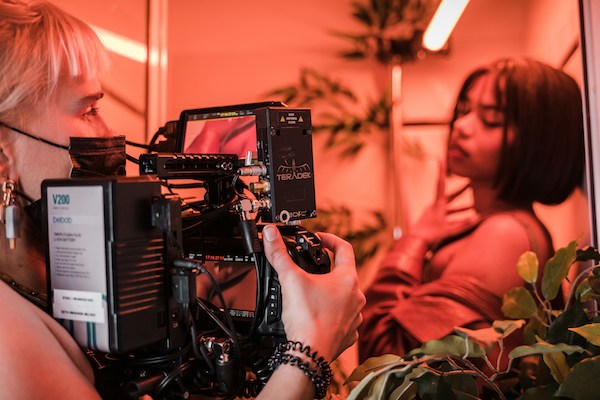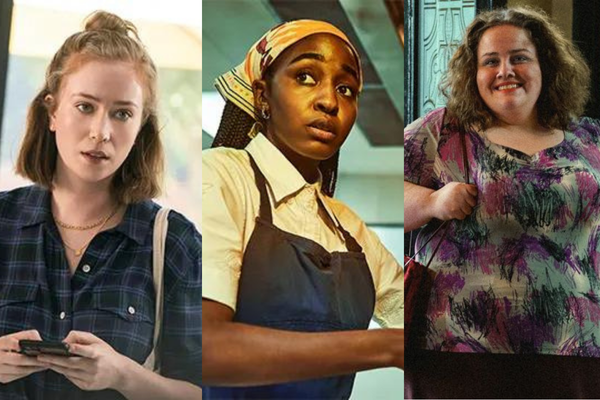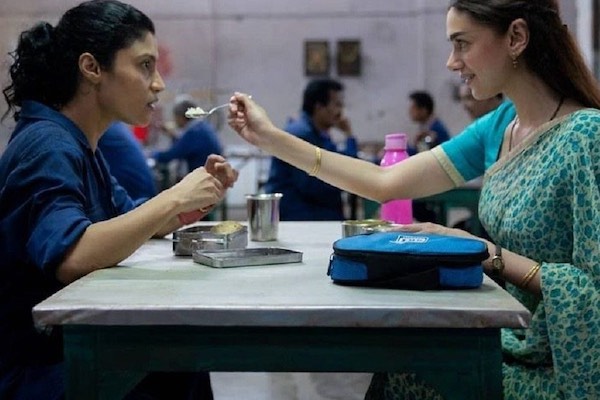
Sapphic Burlesque: The Blossoming Nightlife Niche for Queer Women
April 6, 2024
A Super Sapphic Soundtrack for Spring
April 14, 2024As a teenager, I had no idea that I was a lesbian. I didn’t grow up knowing any openly queer people, and my family was staunchly Catholic. Looking back, all of the signs were there: I wasn’t dating, I had insanely close relationships with my girl friends, and my bedroom walls were adorned with photos of pop divas in low-rise jeans and low-cut shirts—there wasn’t a single boy band member in sight. In college, my classmates introduced me to The L Word. I remember going to Blockbuster to grab season one and automatically becoming hooked. By the end of the first DVD, I made more sense to myself than I ever had before. I was a lesbian.
Representation is key to helping us figure out who we are and where we want to go. Unfortunately, traditional film and television companies rarely offer sapphic representation, and when they do, it’s often not without issue. Sapphic women on television are killed off so often that the phenomenon has a name: the “bury your gays” trope. When we survive, we’re often relegated to the role of “side gay.” Even in reality TV, producers and editors struggle with the range of gender diversity in our community.
Enter LGBTQ+-owned production and film companies. These companies offer authentic depictions of our lives by portraying our relatable moments, shared struggles, and cultural celebrations. Because the people behind the scenes approving the stories, writing the scripts, producing the content, and editing for consumption are part of the community they speak to, there’s a level of care and insight that isn’t often found in mainstream media.
Christin Baker, Co-founder and CEO of Tello Films, founded her company with the awareness that queer women needed to see their stories told through their eyes. “We need our stories told and I also want to support indie lesbian/queer filmmakers who often don’t receive the funding to tell their stories. Tello Films does both: we support indie lesbian/queer filmmakers and provide a place for people in the community to see themselves and their stories reflected.”
Tello Films exclusively produces and distributes lesbian and queer content, offering feature films, web series, shorts, and documentaries. The company, which Baker founded 17 years ago, is the longest-running LGBTQ+ streaming platform and the first lesbian or queer platform to have a national Emmy Nomination.
Companies like Baker’s offer a type of representation I — and so many others! — could have used growing up. Because LGBTQ+ production and film companies aren’t run by stakeholders looking for the most lucrative path forward, the content is able to really niche down and speak to the diversity within our communities. Fantasies, comedies, romances, supernatural tales, and other genres are seen as valid content genres because they accurately reflect the interests of the LGBTQ+ community they’re made for.
While the longevity of Tello Films speaks for itself, Baker notes that existing outside of the giant media companies can be challenging, especially for LGBTQ+-owned production companies. “We have to work with what we have because there’s not much funding,” she explains. Subscriptions within the LGBTQ+ community are key to keeping companies like Tello Films afloat and allowing them to continue producing queer content.
What we get in return for our subscriptions to these film and production companies is so much bigger than content. We get the chance to support the creatives in our community, show the world that there is a real demand for authentic queer stories, and escape into stories that mirror our lives. And that’s perhaps the most meaningful benefit of all: the opportunity to look into a screen and see a complete version of ourselves reflected back.






